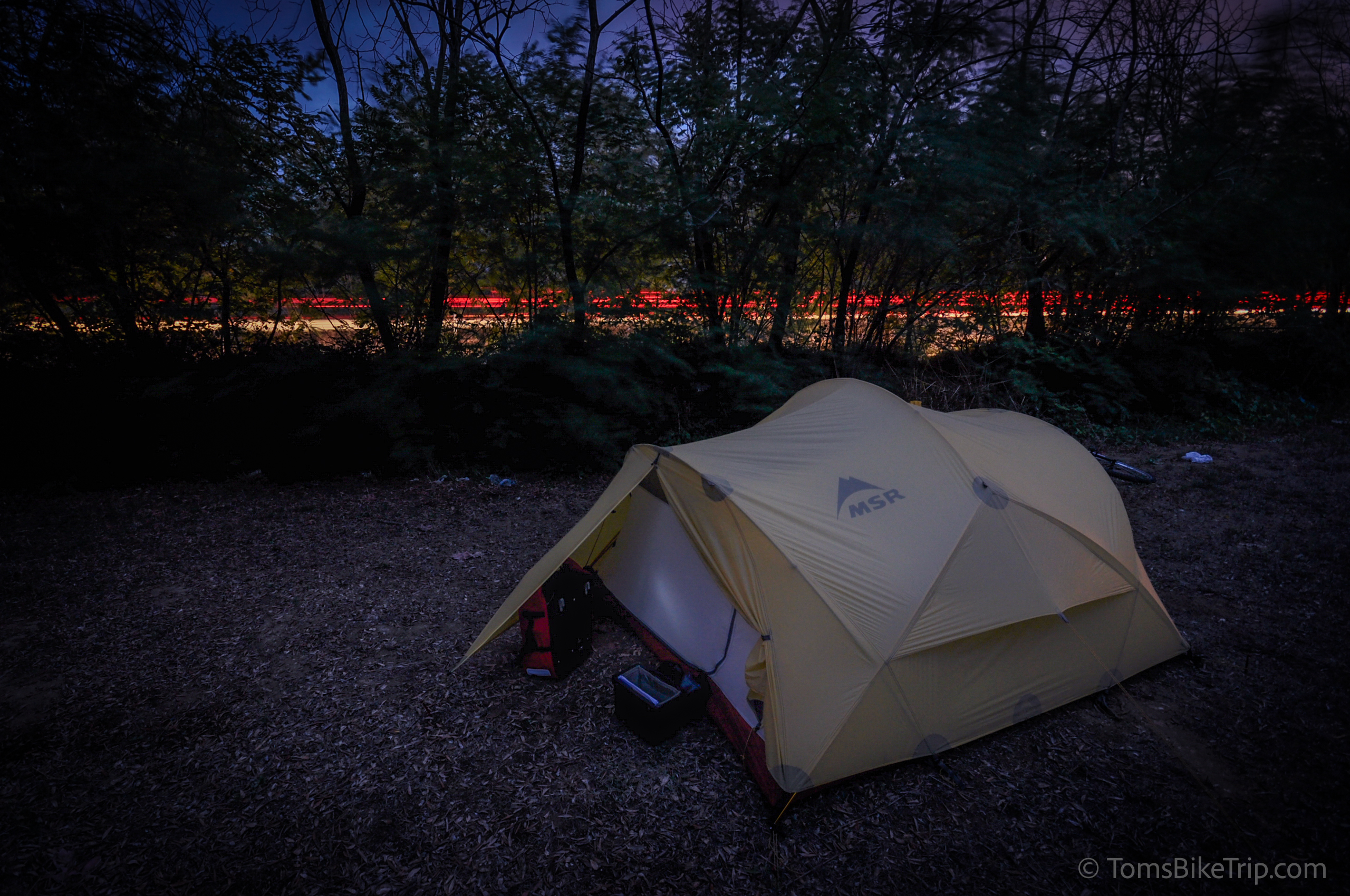A reader writes:
Quick intro: [I] finished school in 2021, cycled around South Africa for a few months in 2022, and currently in Livingstone, Zambia about to start travelling solo around Southern Africa for a few months.
Originally I wanted to cycle back home but for various reasons I have decided to hitch-hike instead. And basically I’m thinking of doing it like you would on a bike tour, just without the bike. So like hitch to a spot, wild camp, hitch, wander around, etc.
What I’m wondering is practically how do you make it work from day to day? […] I’m good at overthinking things and maybe I should just go, but if you get this email and read this far, I’d love to hear from you.
This is an interesting question. What you’re basically asking is how you can replicate the daily routine of cycle touring – with which you’re already familiar – but without a bicycle!
And because you’ve done plenty of cycling and wild camping already, you already understand what will be involved, and are likely looking for confirmation that hitch-hiking won’t be all that different.
The simplest answer I have is that you’ll find a natural rhythm as you go, just as you did when you first went cycle touring. The early days of your new, bicycle-less journey will probably involve a few mistakes and a bit of discomfort, but it’s during that time that you’ll figure out how to make it work.
So my general advice is to just go!
Having said that, I have actually done quite a lot of hitch-hiking, among other forms of travel, as well as quite a lot of cycle touring, so based on my own personal experiences I’m going to share a couple of specific thoughts as well.
Firstly, I think you’ll find it difficult to hitch-hike directly to an ideal wild-camping spot on a daily basis.
There are a couple of reasons I think this will be the case:
The first reason is that you’ll be moving much faster than a cyclist. You’ll already know it typically takes a bit of looking around at a slow pace to find a good spot, and usually it’s best to get off the bigger roads and onto smaller ones. Your existing strategies for successful wild camping might not be very compatible with hitch-hiking, which is best done on main roads with more traffic and in vehicles moving faster than a bicycle (at least if the goal is to cover distance).
The second reason is that you’ll have far less freedom once you’re in someone else’s car/van/truck than you had under pedal power. Once you’ve got a ride, I suspect you’ll have to work hard to convince people to drop you off in the middle of nowhere. Remember that most people spend little or no time in the “places in between” – the long stretches of “nothing” in which cycle tourers spend most of their time – and are very good at projecting their fears of the unknown onto what you now see as a nice camping spot. This will be all the more difficult if there’s a language barrier.
Of course, this could also play out in your favour, as people might end up taking you in! But in any case I think you’d do well to anticipate this kind of thing happening.
This brings me to my second thought: have you considered spending an hour or two at the end of each day walking, rather than hitch-hiking?
If I were in your shoes, I’d be aiming to hitch between settlements, get my supplies for the night, have a good look at the map, and then walk out of town in the most likely-looking direction for wild camping.
Doing that would give me the freedom and time to find a good spot, and it would also mean I wasn’t limited to main roads with plenty of traffic, as I might be if I was trying to hitch-hike directly to a campsite.
(It might also mean walking back into town the following morning to continue hitching. This could be considered a good thing if you’re already familiar with a place and what it has to offer.)
So the new strategies you use to find a wild camping spot, I imagine, will be among the bigger differences in day-to-day routine between cycle touring and hitch-hiking. The rest will probably be fairly similar, as your attitude to travel should shape things more than the mode of transport.
I might be totally wrong, of course, and/or you might find a much better way to approach it all, but that’s one of the beautiful things about adventure travel: everyone does it differently.
Hope this helps!
This is part of my “No Stupid Questions” series, in which readers write in with questions about cycle touring or bikepacking and I attempt to answer them. Check out more recent posts in the series or ask one of your own.


Something to add?